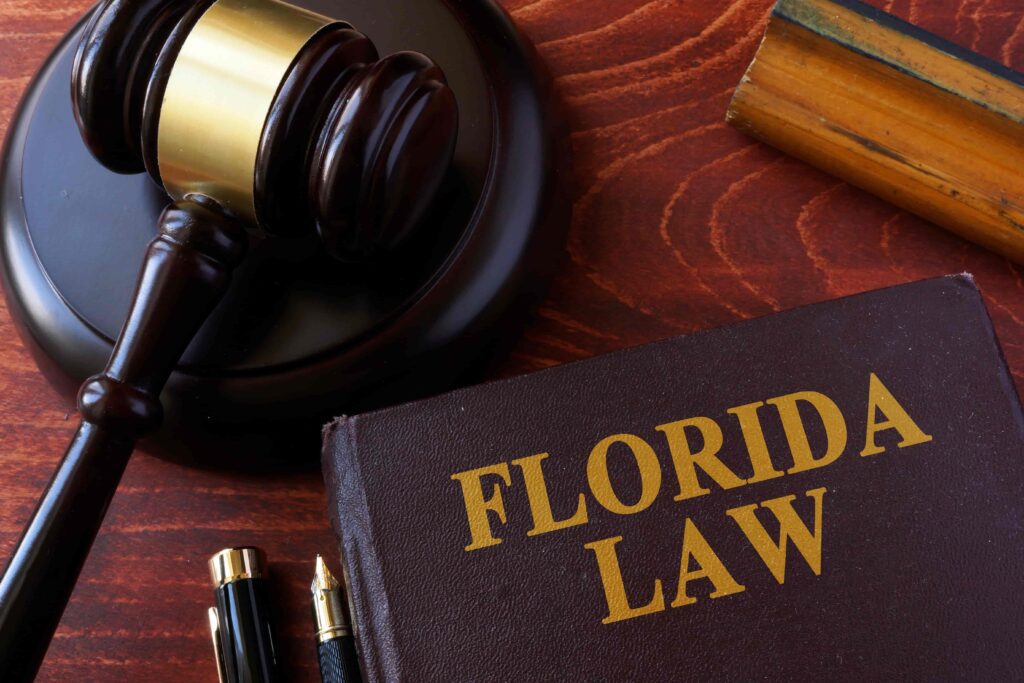Handbook updates in 2025 are far from a formality. Employment law changes quickly. Is your business protected under Florida employment law?

Updating employer handbooks in Florida stands as a critical step for 2025 compliance because new federal regulations, EEOC guidance, and court decisions now create direct legal risks for businesses that keep outdated policies in place.
Companies that fail to update their handbooks in a timely manner risk lawsuits, investigations, and reputational harm. By reviewing and improving handbook policies, employers can adapt to these changes and close the legal gaps that outdated language often leaves open.
A confidential consultation with experienced employer rights attorneys at Brenton Legal can clarify your legal responsibilities to protect Florida employees from harassment, discrimination, and retaliation.
Call 954-639-4644 or complete a brief online form to explore the following legal insights.
Key Takeaways About Why Updating Employer Handbooks in Florida is Critical for 2025 Compliance in Harassment and Discrimination Policy
- The Florida Civil Rights Act requires updated, comprehensive anti-discrimination and harassment policies that go beyond federal minimums and cover marital status, along with clear procedures for investigation and documentation.
- EEOC guidance for 2024-2025 calls for employers to address virtual harassment, intersectional discrimination, and evolving definitions of protected classes in workplace policies.
- The Pregnant Workers Fairness Act creates new obligations that many companies still miss, including accommodations for pregnancy and related conditions.
- The Florida Whistleblower Act and federal statutes require explicit internal and external reporting, anti-retaliation rules, and implementation systems for managers and employees.
- Remote work policies require specific guidance on virtual conduct, digital communications, and technology monitoring.
- Documentation and training standards have grown more demanding, with courts and agencies scrutinizing consistency, completeness, and real enforcement of policies.
Why Do Florida Employers Need To Update Company Handbook Discrimination and Harassment Policies Regularly?
As employment laws evolve in 2025 and beyond, policies that once seemed sufficient may now leave companies vulnerable to discrimination and harassment claims.
The Equal Employment Opportunity Commission (EEOC) and the Florida Commission on Human Relations (FCHR) regularly investigate complaints where outdated policies fail to meet current legal standards, exposing businesses to:
- Regulatory scrutiny: Agencies like the EEOC and FCHR may view outdated policies as evidence of noncompliance, triggering investigations that disrupt daily operations.
- Reputation damage: Inadequate policies can harm a company’s reputation, making it harder to attract and retain top talent.
- Increased legal exposure: Courts often examine handbook policies when determining employer liability in discrimination and harassment cases. Gaps or inconsistencies in policies can weaken a company’s defense.
- Operational setbacks: Legal disputes can drain resources, reduce productivity, and require mandatory retraining or third-party monitoring.
Legal professionals can help businesses identify risks in their current policies and implement updates that align with state and federal requirements, reducing the likelihood of costly disputes.
Federal Law Changes Shaping Florida Harassment and Discrimination Compliance
Recent federal developments create new challenges for Florida employers working to comply with harassment and discrimination laws. These updates, driven by EEOC guidance and court rulings, highlight the need for employers to update workplace policies to meet current legal standards.
EEOC Guidance Adjustments
In May 2025, a federal court invalidated parts of the EEOC’s harassment guidance that expanded the definition of “sex” under Title VII.
While this ruling limits certain aspects of the guidance, Title VII still prohibits discrimination based on sexual orientation and gender identity.
Employers must carefully update their policies to reflect these legal nuances and avoid compliance risks.
Pregnant Workers Fairness Act (PWFA)
The PWFA requires employers with 15 or more employees to provide reasonable accommodations for pregnancy-related conditions.
Unlike the ADA, the PWFA does not require employees to prove a pregnancy-related condition qualifies as a disability.
To meet these requirements, employers need clear policies that address accommodations, interactive processes, and undue hardship determinations.
Remote Work Protections
The EEOC has clarified that anti-harassment and discrimination protections extend to virtual workplaces.
Employers must address conduct during video calls, electronic communications, and hybrid work settings in their policies.
These updates provide employee protections no matter where they work.
Third-Party Harassment
Employers are responsible for addressing harassment by clients, customers, or vendors.
Policies should include clear procedures for employees to report concerns involving non-employees.
Taking proactive steps to address third-party harassment helps businesses maintain a safe and compliant workplace.
Florida Regulations Add Extra Compliance Steps
The Florida Civil Rights Act (FCRA) brings additional requirements. Chapter 760 of the Florida Statutes calls for comprehensive anti-discrimination policies, not just those mirroring federal law. Key compliance issues for Florida employers include:
- Protected Classes: Florida law identifies marital status as a protected class, so handbooks must name it alongside federal categories.
- Whistleblower Protections: The Florida Whistleblower Act requires clear reporting rules and bars retaliation. Businesses in health care, finance, or other regulated sectors face more detailed standards.
- Investigation and Documentation: Florida regulations require prompt investigations and strong documentation practices. Generic handbook language usually fails to meet those procedural requirements.
- Documentation: State laws emphasize precise documentation in investigations. Policies should lay out steps for recording evidence and findings to support both business and employee interests.
Attorneys who practice in Florida employment law work with companies to create policies that cover all relevant obligations, instead of assuming that compliance with federal law alone is enough.
How Can a Florida Employment Lawyer Help Companies Stay Up-to-Date With Handbook Discrimination and Harassment Policies?
Strengthening Anti-Harassment and Discrimination Policies
Modern workplaces require policies that address both obvious and subtle forms of harassment. A Florida employment lawyer can help employers craft policies that include:
- Clear definitions: Lawyers ensure policies define harassment comprehensively, covering everything from overt misconduct to more nuanced behaviors.
- Multiple reporting channels: Legal professionals design systems that allow employees to report issues safely, even when the complaint involves senior management.
- Investigation protocols: Attorneys create step-by-step procedures for handling complaints, ensuring investigations are thorough and legally sound.
- Bystander protections: Policies can include safeguards for employees who report misconduct they witness, reducing fear of retaliation.
- Social media and off-site conduct: Lawyers help employers set boundaries for behavior outside the office that could impact the workplace.
These updates protect employees and reduce the risk of legal exposure for employers.
Updating Pregnancy and Family Status Policies
Federal and Florida laws require employers to provide specific protections for pregnancy and family-related needs. Legal professionals can assist by:

- Clarifying accommodation steps: Lawyers ensure handbooks outline how employees can request accommodations and how employers should respond.
- Addressing lactation support: Policies can include clear language about providing facilities and breaks for nursing mothers.
- Coordinating leave policies: Attorneys help align federal and state leave requirements, avoiding conflicts or gaps.
- Defining return-to-work procedures: Legal guidance ensures policies protect employees returning from leave while meeting business needs.
- Handling partner and family leave: Lawyers draft language that addresses family-related leave requests, tailored to the company’s size and obligations.
Precise language in these policies helps employers navigate complex legal requirements while supporting their workforce.
Enhancing Whistleblower and Retaliation Protections
Florida’s whistleblower laws create specific obligations for employers. A whistleblower protections lawyer can help by:
- Defining protected conduct: Attorneys clarify what qualifies as whistleblowing under state and federal laws.
- Ensuring confidentiality: Legal professionals design policies that protect the identity of employees who report concerns.
- Establishing reporting procedures: Lawyers create clear, step-by-step guidance for internal and external reporting.
- Drafting anti-retaliation rules: Policies can include strong language about the consequences of retaliation, reducing the risk of legal claims.
- Training managers: Legal professionals provide training to ensure those handling complaints understand their responsibilities.
Industries like healthcare and government contracting often face additional federal requirements, which lawyers can integrate into company policies.
Addressing Remote Work and Digital Workplace Challenges
Hybrid and remote work environments introduce unique risks that outdated handbooks fail to address. Legal professionals can help employers:
- Set virtual meeting standards: Policies can outline expectations for behavior, appearance, and interactions during video calls.
- Define digital communication boundaries: Lawyers draft guidelines for professional use of emails, texts, and workplace platforms while respecting privacy.
- Clarify off-site event policies: Attorneys ensure policies apply to after-hours events, online training, and virtual networking.
- Explain technology monitoring: Legal professionals balance business needs with employee rights when drafting policies about monitoring emails, chats, and devices.
These updates help employers manage risks in digital and hybrid workplaces while maintaining compliance.
Supporting Training and Implementation
Policies are only effective when employees and managers understand and follow them. A Florida employment lawyer can assist by:
- Developing training programs: Lawyers create training that reflects current legal standards and addresses company-specific risks.
- Educating managers: Attorneys ensure managers know how to handle complaints consistently and appropriately.
- Communicating updates: Legal professionals help employers roll out policy changes clearly and effectively.
- Ensuring fair enforcement: Policies are designed to apply equally to all employees, reducing the risk of claims.
- Documenting compliance: Lawyers establish record-keeping practices that demonstrate training and enforcement efforts.
These steps not only support compliance but also foster a positive workplace culture.
Improving Documentation and Record-Keeping
Strong documentation practices protect employers during investigations and legal disputes. Legal professionals can help by:
- Standardizing complaint intake: Policies can include forms and procedures that capture all necessary details.
- Establishing investigation protocols: Lawyers ensure investigations are thorough and protect confidentiality.
- Managing files securely: Legal professionals create systems for maintaining personnel files and investigation records.
- Preserving digital evidence: Policies can address how to store and protect electronic records.
- Setting retention schedules: Attorneys align document retention and disposal practices with legal requirements.
Proper documentation supports compliance and strengthens an employer’s legal defense.
Addressing Industry-Specific Risks
Each industry faces unique challenges that generic policies often overlook. A Florida employment lawyer can identify and address these risks, such as:
- Healthcare: Policies can address patient interactions, disability accommodations, and safety reporting requirements.
- Finance: Lawyers help cover customer harassment, privacy rules, and regulatory reporting tied to employment.
- Government contractors: Policies can meet federal worker protection rules and security clearance requirements.
- Hospitality and service: Legal professionals draft protocols for customer and vendor harassment, tip policies, and scheduling practices that avoid bias.
Tailored solutions help employers manage risks specific to their industry while maintaining compliance.
Florida Company Handbook Discrimination and Harassment Policy Updates FAQ
How can Florida employers keep their handbooks up to date between annual reviews?
Legal professionals can help set up alerts and calendar systems to flag relevant updates in statutes, regulations, or agency guidance so employers can act before a compliance gap appears.
What if a handbook conflicts with a collective bargaining agreement?
Union contracts rule in any area they directly address. Legal counsel can assist management in reviewing handbook policies so they cooperate with rather than contradict CBA terms.
Can handbooks promise too much and create legal risk?
Broad promises sometimes become enforceable as contracts. Attorneys can draft language that communicates company policy clearly while managing legal exposure.
How should a company handle multi-state operations?
Employers should create clear, central policies but build in state-specific supplements that address key differences. Legal help proves essential so each location follows both local and federal law.
Does company size matter for handbook compliance?
Federal laws often start at 15 employees, but Florida’s rules sometimes apply to smaller companies. Policy updates and training requirements may differ. An employment attorney can advise on when and how rules apply.
Which fields face additional scrutiny on handbook policies?
Health care, finance, government contracting, and hospitality often face extra regulatory pressure. Industry-specific legal insight can help meet complex expectations in these sectors.
Need Assistance Staying Compliant WIth Florida and Federal Harassment and Discrimination Company Handbook Policies? Contact Brenton Legal For Experienced Legal Support
Florida employment law changes frequently, and companies that routinely update handbook policies prevent costly legal problems.

Success means more than meeting minimum standards. It means anticipating trends and addressing risks before they lead to claims, investigations, or business losses.
Handbook updates rarely follow a cut-and-paste formula. Legal guidance helps businesses keep their policies ready for what comes next and turns compliance into a tool for employee rights and business protection.
Are your handbook policies ready for 2025 and beyond? Contact a Florida employer rights attorney at Brenton Legal for a confidential case consultation. Call 954-639-4644 or complete a brief online form to protect your business today.

